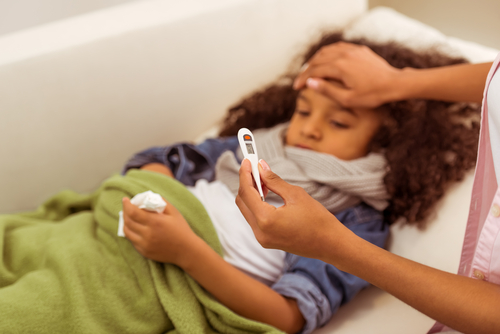State measures implemented about three years ago to improve vaccine education have caused the number of non-medical vaccine waivers to drop and vaccination rates to rise in Michigan. Yet the 15 recent confirmed cases of measles prove that those who refuse vaccines — or to vaccinate their children — continue to risk both their health and the health of the state.
Measles is spread by direct person-to-person contact, and through the air by a contagious person sneezing or coughing. Germs can live for up to two hours.
The markers of the infection include developing tiny white spots with bluish-white centers on the inner lining of the cheek and a large blotchy skin rash along with some flu-like symptoms.
The 15 confirmed cases are the highest in the state since 1994, when 26 cases were reported. Given that measles has been officially eliminated in the United States since 2000 (new cases originate from outside the country and are brought here), the state should continue to see decreased numbers of cases. But due to the reluctance of some to vaccinate their children, Michigan residents are still at risk.
Though the infection is not regularly present in our country, unvaccinated people continue to get measles while abroad and bring the disease into the United States and spread it to others, according to the Centers for Disease Control and Prevention. Given that southeast Michigan has a major hub airport, residents of Metro Detroit are at a higher risk.
In fact, all three confirmed cases of measles in Oakland County came from Michigan residents who traveled through the airport while contagious.
Though 15 cases may seem like a small number, infection rates grow quickly in places with lower levels of vaccination.
A large outbreak occurred in 2014 in an Ohio Amish community after two men returned to the community from doing typhoon relief work in the Philippines. Over the course of several months, 383 children and adults contracted the infection and the CDC had to vaccinate over 10,000 people to contain the outbreak.
An outbreak of that level is still possible in our state considering that of the nearly 120,000 kindergartners in Michigan, only 95 percent of them have received their MMR (Mumps, Measles and Rubella) immunization. That means there are roughly 80,000 unvaccinated children who are at risk to contract measles in our state, according to information compiled by the CDC.
That is unacceptable considering the MMR vaccine poses no documented health risks and is readily available, either through standard health care coverage or through the federally funded Vaccines For Children program which provides vaccines at no cost for children whose families cannot afford them.
Parents who choose not to vaccinate their children also put those who cannot receive vaccines due to health concerns like allergies at greater risk.
To protect the health of all Michigan residents, especially from the threat of a measles outbreak, vaccination must remain a top priority.

